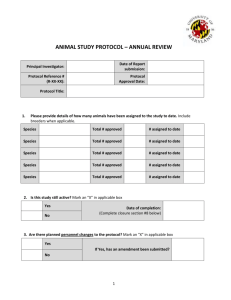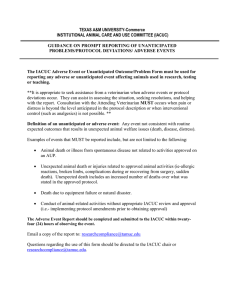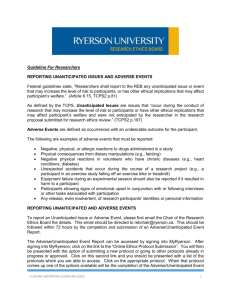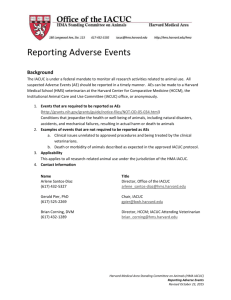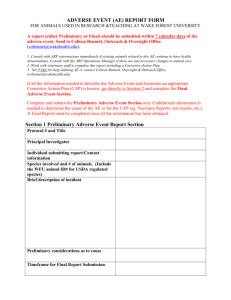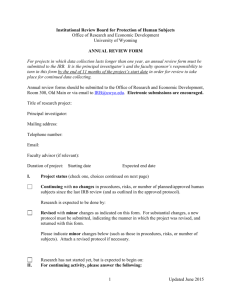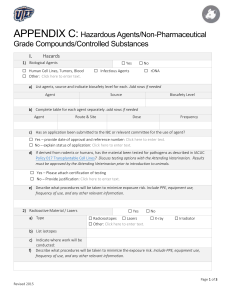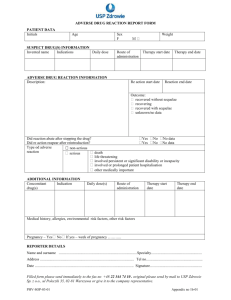UNCG ANIMAL CARE & USE PROGRAM POTENTIAL ADVERSE
advertisement
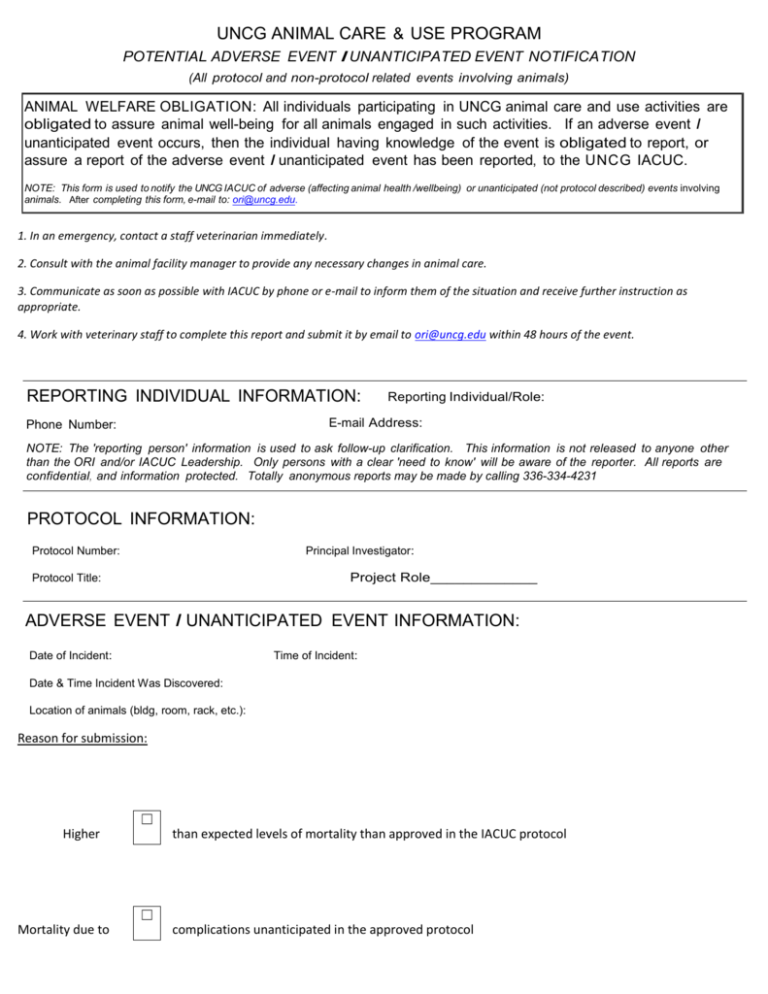
UNCG ANIMAL CARE & USE PROGRAM POTENTIAL ADVERSE EVENT I UNANTICIPATED EVENT NOTIFICATION (All protocol and non-protocol related events involving animals) ANIMAL WELFARE OBLIGATION: All individuals participating in UNCG animal care and use activities are obligated to assure animal well-being for all animals engaged in such activities. If an adverse event I unanticipated event occurs, then the individual having knowledge of the event is obligated to report, or assure a report of the adverse event I unanticipated event has been reported, to the UNCG IACUC. NOTE: This form is used to notify the UNCG IACUC of adverse (affecting animal health /wellbeing) or unanticipated (not protocol described) events involving animals. After completing this form, e-mail to: ori@uncg.edu. 1. In an emergency, contact a staff veterinarian immediately. 2. Consult with the animal facility manager to provide any necessary changes in animal care. 3. Communicate as soon as possible with IACUC by phone or e-mail to inform them of the situation and receive further instruction as appropriate. 4. Work with veterinary staff to complete this report and submit it by email to ori@uncg.edu within 48 hours of the event. REPORTING INDIVIDUAL INFORMATION: Reporting Individual/Role: E-mail Address: Phone Number: NOTE: The 'reporting person' information is used to ask follow-up clarification. This information is not released to anyone other than the ORI and/or IACUC Leadership. Only persons with a clear 'need to know' will be aware of the reporter. All reports are confidential, and information protected. Totally anonymous reports may be made by calling 336-334-4231 PROTOCOL INFORMATION: Protocol Number: Principal Investigator: Project Role_____________ Protocol Title: ADVERSE EVENT I UNANTICIPATED EVENT INFORMATION: Date of Incident: Time of Incident: Date & Time Incident Was Discovered: Location of animals (bldg, room, rack, etc.): Reason for submission: ☐ Higher than expected levels of mortality than approved in the IACUC protocol ☐ Mortality due to complications unanticipated in the approved protocol ☐ High “cluster” mortality (Cluster mortality is defined as a grouping of animal deaths occurring closely together, significantly above anticipated study loss levels) protocol, ☐ Morbidity/non-fatal complications significantly beyond that anticipated in the approved especially those creating difficult to manage levels of pain and distress. ☐ Protocol Deviation. Protocol deviations refer to departures, omissions or mistakes made by the research team that are inconsistent with the intent of the approved protocol. Other (list) ☐ Briefly summarize the protocol deviation or unanticipated mortality/morbidity: a) b) c) d) e) species involved: number of animals impacted: animal identification number(s) – if applicable: date or date range of incident(s): a short narrative describing the adverse event(s) occurring (please also list and compare with the anticipated nature and frequency/rate of morbidity or mortality described in the currently approved protocol): f) preliminary considerations as to the pathogenesis of the adverse event(s): g) any existing or pending diagnostics, data or reports that may help further explain the cause(s) of the adverse events: h) any additional information, extenuating circumstances or other details that may be helpful in reviewing this matter: Has there been prior communication or consultation with the ARP veterinary staff concerning this or similar adverse events? Yes No ☐ ☐ If yes, please provide any salient details. Was veterinarian or facility staff contacted? If so, when? How was the contact made (e.g., phone, Email, fax) Yes ☐ No ☐ Corrective Actions Taken: Briefly describe any self-corrective actions taken to discourage a similar future occurrence: Events listed in this form should be summarized and included in the in the PI’s next Annual Renewal Application for Approval to Use Vertebrate Animals in Research submission, under the Problems/Adverse Events Section. Approval of plan: Yes No ☐ ☐ Additional Comments: Date: Click here to enter a date. Recommendation: Attending Veterinarian (or designee). Approval: IACUC Chair signature.
